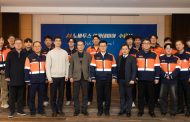In the era of digital transformation, UNIST and Ulsan Research Institute (Ulsan Big Data Center) joined forces to host an international symposium, which delves into future innovation in Ulsan, the industrial powerhouse of South Korea. This thought-provoking event, entitled ‘International Symposium on the Role of Industrial Engineering and Data Science in Transforming Local Industries and Communities’ took place at UNIST Haedong Hall on November 2, aiming to foster collaboration between academia and industry to address immediate challenges facing Ulsan.
The symposium commenced with a congratulatory speech by UNIST Vice President Jaiyong Lee, highlighting the university’s commitment to leading the 4th Industrial Revolution in Korea and Ulsan. Vice President Lee emphasized the application of high-value-added technologies to the industry, job creation, and economic value in Ulsan.
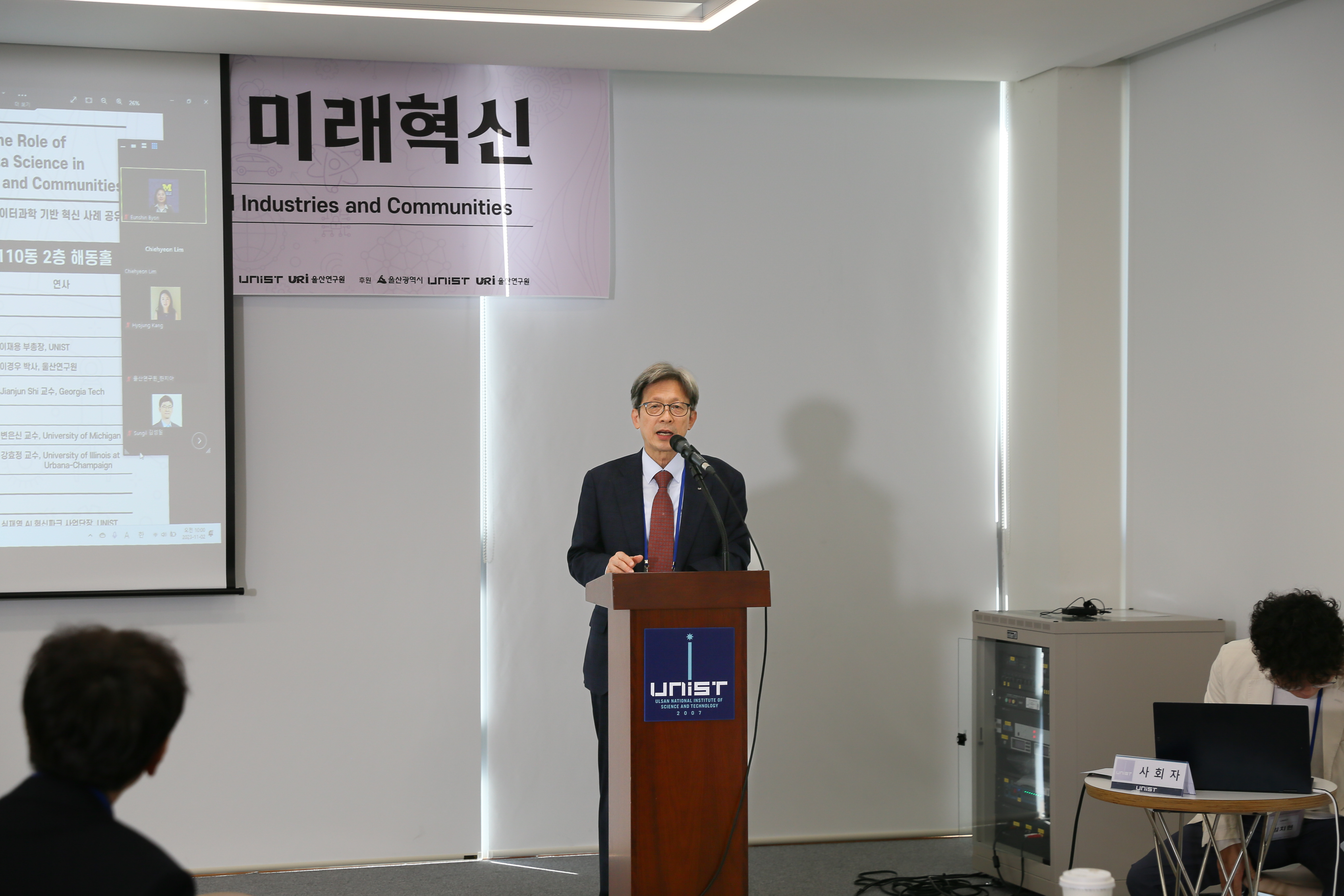
UNIST Vice President Jaiyong Lee, delivering a congratulatory speech at the symposium.
In his congratulatory speech, Vice President Lee expressed that “UNIST, being a research-oriented university at the forefront of the 4th Industrial Revolution in Korea and Ulsan, is committed to the application of high-value-added technologies in various industries.” He also emphasized the university’s dedication to generating employment opportunities and contributing to the economic growth of Ulsan through the creation of significant economic value.
Distinguished speakers from home and abroad shared innovation cases in crucial industries, such as manufacturing, energy, transport logistics, and healthcare.
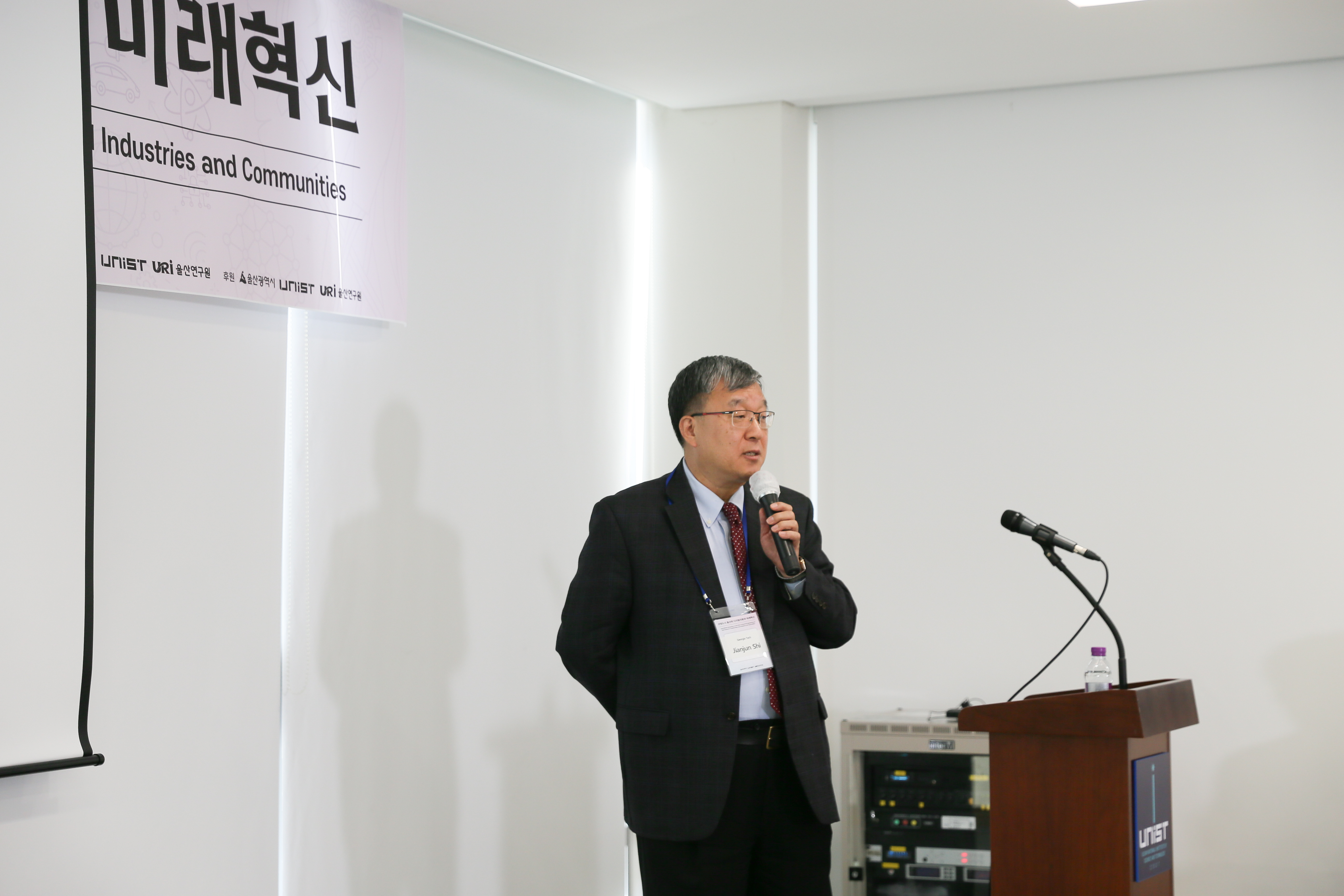
Professor Jianjun Shi from Georgia Tech is introducing an exemplary case of industrial innovation in manufacturing during the symposium.
Notable presentations included Professor Jianjun Shi from Georgia Tech, Professor Byun Eun-shin from the University of Michigan, and Professor Hyojung Kang from the University of Illinois at Urbana-Champaign (UIUC), who discussed overseas innovation cases in manufacturing, energy, and healthcare, respectively.
On the domestic front, Director Jae-Young Sim from UNIST AI Innovation Park and Professor Sang Jin Kweon from the Department of Industrial Engineering at UNIST showcased several industrial innovation cases. Director Sim focused on industrial artificial intelligence development, while Professor Kweon presented a case on optimizing decision-making to improve transportation and logistics infrastructure in Ulsan.
Ulsan University and Ulsan Research Institute (Ulsan Big Data Center) also contributed to the symposium by sharing their digital transformation and future innovation cases. Dean Cho Ji-woon of Academic Affairs at University of Ulsan, discussed industry-academic cooperation in the Ulsan region, while Director Jae Young Park of Ulsan Research Institute (Ulsan Big Data Center) presented a case study on Ulsan’s public big data analysis.
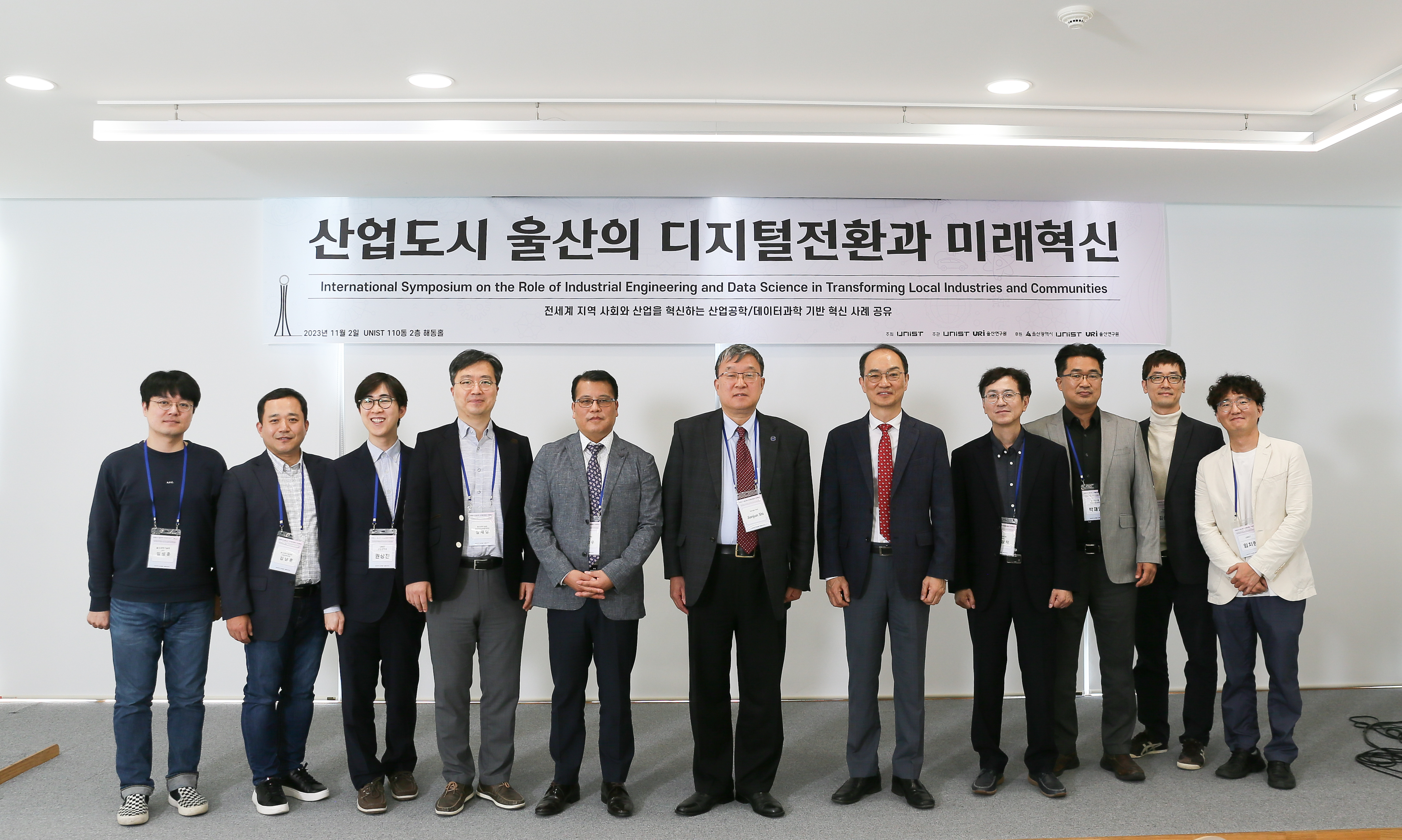
Group photograph taken at the ‘International Symposium on the Role of Industrial Engineering and Data Science in Transforming Local Industries and Communities’ on November 2, 2023.
Furthermore, an engaging panel discussion on the “Industrial, Academic, and Research Cooperation Plan to Solve Ulsan’s Problems” was held. Esteemed panelists included Professor Jianjun Shi, Dean Chi-Woon Cho of Academic Affairs at the University of Ulsan, Professor Sang Jin Kweon, and Research Fellow Sang Rak Kim from Ulsan Research Institute.
An official from UNIST and Ulsan Research Institute expressed their enthusiasm, stating, “We have provided a platform to address industrial challenges by leveraging digital technologies such as data science and artificial intelligence, crucial for elevating Ulsan’s status as the industrial capital.” They further added, “We plan to make this symposium an annual event to disseminate the outcomes and foster continued progress.”
The symposium was hosted by UNIST and co-hosted by the Ulsan Research Institute, with the participation of Ulsan Metropolitan City as a sponsor. Attendees included approximately 80 representatives from government agencies, companies, and educational institutions from Ulsan and other regions.


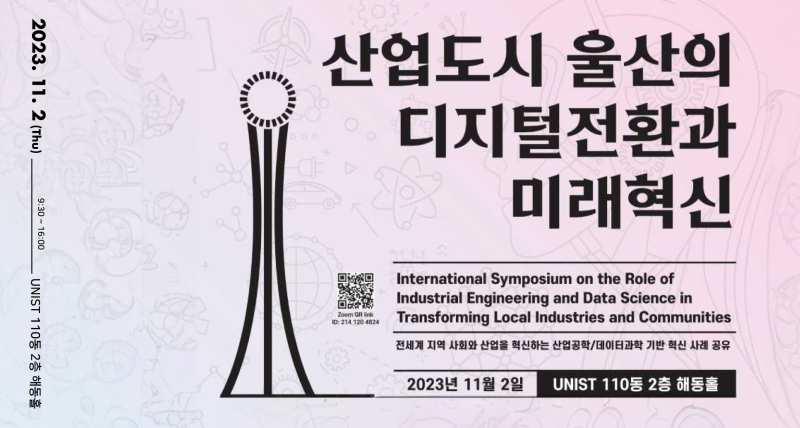



![[2026 Matriculation] UNIST Welcomes Class of 2030!](https://news.unist.ac.kr/wp-content/uploads/2026/02/사진-박종래-UNIST-총장이-2026년-입학식사를-전하고-있다-2-190x122.jpg)
![[2026 UNIST Commencement] UNIST Confers Degrees to 883 Graduates](https://news.unist.ac.kr/wp-content/uploads/2026/02/사진-2026학년도-UNIST-졸업생들이-학사모를-위로-던지며-졸업을-축하하고-있다-1-800x413-190x122.jpg)
